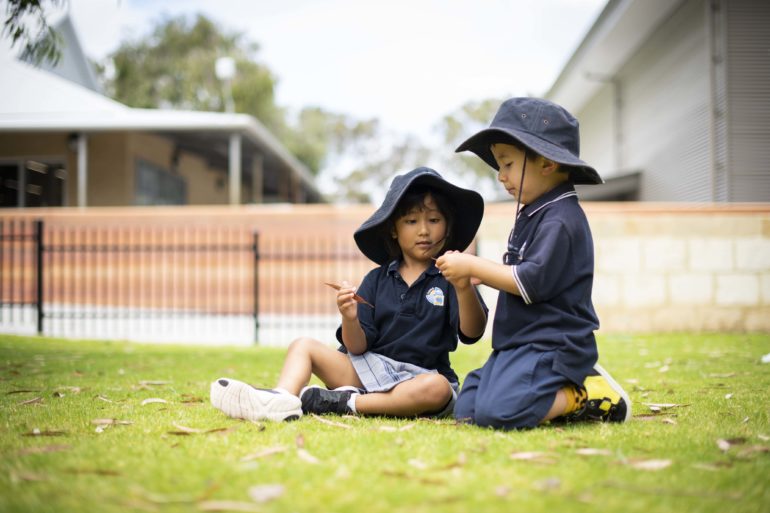193 St Brigids Terrace
Doubleview, 6018 WA
+61 8 9285 1144
Reception
Mon - Fri: 8:00 - 16:00
Term School Hours
Doubleview, 6018 WA
Reception
Term School Hours
At ISWA, our welcoming community is at the heart of our school ensuring our youngest students are nurtured and supported to explore and grow.

Teaching and Learning
Through the International Baccalaureate Primary Years Programme (PYP) and the Australian Early Years Learning Framework, students are engaged in nature-based play and exploration, empowering them to learn independently and engage with their teachers and peers.
Introducing the PYP from Kindergarten upwards, ISWA nurtures strong personal values, confidence and resilience at a time when child development is most active.
We inspire students to create, explore and imagine, encouraging them to discover concepts within the context of their own interests.
Our Early Years students also benefit from specialist programmes in Music, Art, Drama and Physical Education with a strong focus on second language acquisition.
Daily Schedule
At ISWA, our Early Years classes operate programmes five days a week from 8.30am – 3.15pm.
After-school care arrangements are available daily and on-site from an external provider. Learn more via our Outside School Hours Club webpage.
Age of Entry
Kindergarten is the first class of Early Years learning at ISWA. Students must be four years of age or becoming four years of age within the first six months of the academic year (July – December).
Pre-Primary is the second class of Early Years learning at ISWA. Pre-Primary is a compulsory year of full-time study, as determined by the Government of Australia. Students are welcome to enrol without having attended Kindergarten at the school. Students will progress to Year 1 at the completion of Pre-Primary.
For further information please visit external sources:
We wish to acknowledge the traditional custodians of the land we are on, the Whadjuk (Perth region) people and pay our respects to their Elders past and present. We acknowledge, respect and seek to learn from their wisdom, continuing culture and the contribution they make to the life of this city and this region.